Lib Dems speak out at Westminster Hall debate on Self-ID
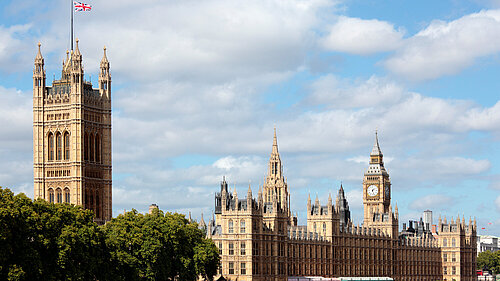
Today there was a Westminster Hall debate on gender Self-ID. The debate followed an online petition which garnered over 127,000 signatures reading:
Allow transgender people to self-identify their legal gender.
We believe the government should change legislation to make it easier for trans people of all ages to change their legal gender without an official diagnosis of gender dysphoria.
Transgender people have a history of major discrimination in the UK and around the world. Major studies in reputable journals have shown a positive correlation between allowing trans people to live as their gender, rather than their sex assigned at birth in regards to positive mental and physical health outcomes.
Here's what Lib Dems speaking in the debate said.
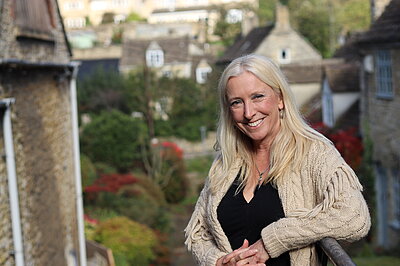
Roz Savage MP (South Cotswolds) introduced the debate, saying: "It is a pleasure to serve under your chairmanship, Mr Mundell, and to bring forward this very important debate. I am grateful to the petitioner, John Baic, and the more than 127,000 people who signed the petition, including 132 from my South Cotswolds constituency. The petition calls for a simple principle: that trans people should be able to self-identify their legal gender without needing an intrusive medical diagnosis; and for trans people to live with dignity, not bureaucracy, and with compassion, not suspicion. This means allowing someone to change their legal gender through a statutory declaration. That already works effectively in countries such as Ireland, Argentina and Denmark, and it does not remove safeguards; false declarations remain a criminal offence.
"What self-identification does is remove unnecessary medicalised hurdles that dehumanise trans people and delay access to legal rights. Many trans people already live full time in their affirmed gender, without ever applying for a gender recognition certificate, precisely because the process is so inaccessible. The current system does not stop people from transitioning; it simply makes their lives harder—so much harder.
“The Liberal Democrats have long supported reform of the Gender Recognition Act 2004 to make it less bureaucratic and intrusive. Our party policy is clear. We support removing the requirement for medical reports, recognising non-binary identities in law and ending the spousal veto—the very proposals that the Conservatives brought forward in 2018. We also believe in a wider approach, expanding access to timely, high-quality healthcare and putting an end to all forms of conversion practices.”
After a short, constructive interjection from a Plaid MP, Roz continued: "For us, this is not about abstract debates, but about real lives, human beings and the fundamental human right for someone to live safely, freely and in their own truth. Yet today we find ourselves in a situation where one of society’s smallest minorities is being targeted with hostility and violence.
“According to the 2021 census, only 0.5% of adults in England and Wales identified as trans or gender diverse, yet entire newspaper front pages and hours of political debate are dedicated to their existence. This toxic and hostile debate has real-world consequences. According to the Office for National Statistics, hate crimes against trans people have risen by close to 200% since 2018. In 2023, of the nearly 5,000 transphobic hate crimes reported, only 126 led to prosecution—less than 3%. That is not acceptable. Nearly half of all trans and gender-diverse individuals have experienced sexual assault. Trans women without access to gender-affirming care are significantly more likely to attempt suicide—one in five will try. While this is often painted as a culture war, the human cost is painfully real.
"Let us take the example of Joelle, a trans woman who died of an eminently treatable cancer after waiting for eight days on a general ward, because clinicians could not agree whether she should be placed on a men’s ward or a women’s ward. The delay in treatment cost her her life. That is not to mention the recent Supreme Court ruling and the devastating impact that its implications are having on trans people, who are just trying to get on with living their lives.
After another interjection she continued:
"I am keenly aware of the distress that the Supreme Court ruling has caused. It seems to fly in the face of common sense when somebody who is clearly living life as a female would, under this ruling, have to go into male spaces. It beggars belief. The ruling hurts not only trans people, but any woman who does not conform to feminine norms, who may be challenged on entering a women’s space. This is not just a legal roll-back for trans rights, but a roll-back for women’s rights.
"A recent survey response from a parent said:
"“I’m primarily worried about my trans daughter’s safety as a result of the ruling. I’m also worried about my cis daughter’s future and the increasing pressure to conform to restrictive gender stereotypes.”
"A trans person responding to the same survey said that they felt:
"“Stress, anxiety and uncertainty for the future. More and more I feel like I am having to shrink my life for my own protection”.
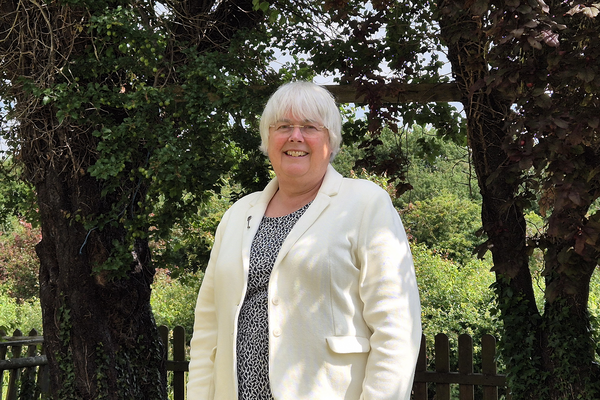
Charlotte Cane, Lib Dem MP for Ely and East Cambridgeshire, said: "I, too, thank the petitioners for bringing this petition forward, and my hon. Friend the Member for South Cotswolds (Dr Savage) for moving the motion.
"Since the Supreme Court decision, I have received a lot of emails from people in great distress, and even fear. I have talked to women who have transitioned who were very confident playing a strong role in their local community—in many cases, standing to be councillors and things like that—but even those confident women, whom I have known for years, are now frightened and worried about how they will manage under the guidelines put in place since the Supreme Court made its decision.
"We all know that the NHS is in crisis, and that is also true of the services for transgender people. As we have heard, they can correct their gender on their passport and driving licence with just the support of their GP, but they cannot get that all-important gender recognition certificate, nor the medical treatment they need, such as hormones and so forth. As we have heard, they often have to wait up to seven years just to be seen, or they have to pay significant funds to see someone privately.
"Once someone has paid for that diagnosis, there is no guarantee that their GP will prescribe the medication, so then they also have to pay for that privately. In the words of one woman navigating this system:
"“It’s a system that lacks any dignity and has put me in real danger as I had to begin to live as a woman long before I had any hope of starting hormones to make doing so safer and easier to fit into society.”
"For someone living in the gender they identify with, while not fully looking like that gender, the trauma is huge. They become a target for those who think they have the right to abuse and assault someone just for being different. We are requiring people to go through that for seven years before they can get any help. Then they have to live like that for a further two years before they can get their certificate. We simply must improve this situation.
"The recent Supreme Court decision and the EHRC guidelines mean that, even when people have their gender recognition certificate and have fully transitioned, their problems are, sadly, far from over. The Supreme Court has been misreported as having stated that a woman is someone who was born a woman. In fact, it ruled that, for the purposes of part of the Equality Act, the term “woman” means someone who was born a woman. It went on to reaffirm that trans people’s rights must be respected.
"However, the EHRC almost immediately issued guidance that was unworkable and did not respect the rights of trans people, and we all understand that it will be contested legally. If a trans woman cannot use women's toilets and should instead use other toilets, what is she supposed to do? If she uses the gents, she risks abuse and assault. If she uses the disabled toilet, she takes up a facility that others might need.
"This is a major imposition on a person’s life. When they want to travel, go to the theatre or go to a sports venue, they face the challenge of what they are going to do if they need the toilet. How can we be doing this to people? It is outrageous. One woman facing this dilemma told me:
"“Since the ruling, I have seen a flood of hate. I have lost friends to suicide, and I have friends struggling to survive. Public life brings social anxiety. For example, this Friday I am travelling to Manchester. This is my first long trip away from home since the ruling, and it scares me. If I use female toilets, I could be apprehended, I am sure I would not, could not use the men's toilets, and ‘disabled’ toilets also expose me, if they are available. During my transition, I had several ‘situations’ including assault, and I thought this was all behind me. Going back to a life of fear in public is something I will struggle with and would do everything to avoid.”
"We cannot allow this to continue. It is not acceptable. One of our core functions as MPs is to ensure people’s safety, and we are not ensuring the safety of trans people. I therefore ask the Minister to talk to her colleagues in the Department of Health to ensure that people are seen promptly and supported through their transition. I also ask her to urge the Minister for Women and Equalities, the right hon. Member for Houghton and Sunderland South (Bridget Phillipson), to work with women’s groups and LGBTQ+ groups to provide guidance that is workable and that respects the rights of all vulnerable groups. I further ask her to work with colleagues to consider any necessary changes to the law."
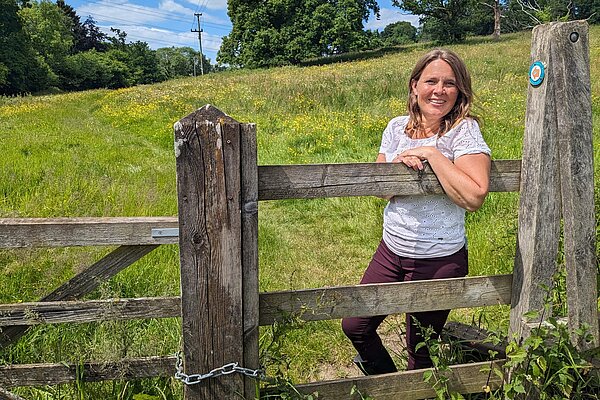
Mid Dorset and North Poole MP Vikki Slade said: "It is shocking that over 16,000 people are currently waiting for treatment at the London gender identity clinic alone, and that it is currently treating people referred in the summer of 2019. There are 6,225 children currently waiting on gender waiting lists, and waits of more than three years are completely normal. If it takes that long to achieve a first appointment, imagine how long it takes to achieve two medical assessments.
"The NHS figures issued last week have completely confused me. According to NHS England, the figures on referral for treatment for the whole country state that only 147 people are waiting more than 104 weeks—that is two years—for any treatment. How is that possible? Are gender identity clinics not included in the figures? It makes no sense at all. I would be interested to know how those figures were come up with. How can we look trans people in the face and tell them that only 147 people are waiting for treatment, when we know that thousands and thousands are waiting for life-affirming treatment?
"Fifty per cent of trans and non-binary youth have seriously considered suicide in the last year alone, driven by stigma, exclusion and hate. A local teacher from Dorset told me that he found it deeply upsetting to see young people who feel that their rights are being stripped away. He said the ruling is not just a setback for human rights but an act of erasure.
"A trans constituent told me that we need a system that protects all women, including trans women, and went on to say:
"“I am asking you to see me and help build a future where trans people don’t have to fight every day to exist.”
"What a sad state of affairs."
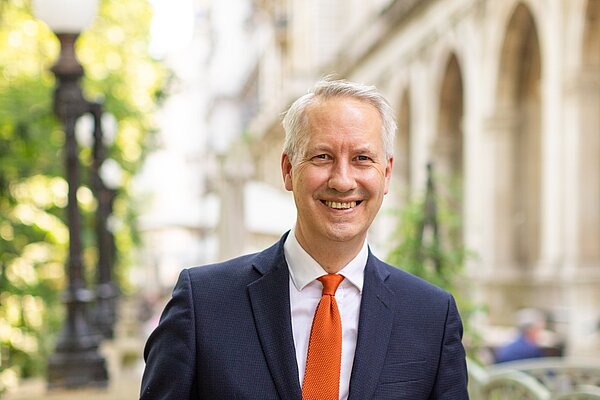
Gideon Amos, Lib Dem MP for Taunton and Wellington interjected: “Does my honourable Friend agree that we need to do more to protect trans people?
"In Somerset, for example, trans hate crimes have increased from 119 to 179. While providing women-only spaces where they are needed, we need to do more to stand up for trans people who feel frightened and afraid and who are being attacked.”
Vikki responded: "My hon. Friend is absolutely correct.
"We talk a lot about the needs of trans women but very little about the needs of trans men. I am deeply concerned about the impact on trans men who might be forced to go into women’s toilets. Many of them do an amazing job of masking and appearing to be men. I am sure that most of us know people but have no idea they are trans men, because so many have fantastic facial hair—more so than some men I know—and incredible muscles and tattoos. Imagine being a trans man who is told that they have to go to a women’s refuge. Imagine being the women in that refuge when a trans man comes in and says, “I have to be here because I’m still treated as a woman.” That is just offensive."
After a short contribution from another MP she continued: "Let me share some just some of the words used by trans people about the current gender recognition system: “traumatic”, “intrusive” and “over-medicated”. I am pleased that one of our Liberal Democrat Members in the other place is looking at how we can remove the need for a spouse to consent. How can it be compliant with the human rights of a trans person if their spouse has to consent to their getting a gender recognition certificate?
The recent Supreme Court ruling has made life as a trans person so difficult, and calls into question the value of a gender recognition certificate. If trans people who have undertaken all that is required to achieve that status are still to be treated as though they remain in the sex that they were assigned at birth, what is the point of a gender recognition certificate? Self-ID seems to be the only viable alternative. If self-ID is not to be progressed, what assurance can the Minister give our trans constituents that a gender recognition certificate will become easier and quicker to attain? If a trans person has gone through many years of distress, treatment, cost and trauma, they deserve to be honoured and respected, and their legally acquired gender should be recognised.
"I recently recruited a member of staff, who unfortunately did not stay with me very long because they found the whole process quite traumatic. The day before they were due to start, they emailed me to tell me that they thought I needed to know that they were trans. I was so upset that they felt the need to do that. What sort of world are we in when someone has to share that private information with me, as their employer, and then is so traumatised by it that they decide they cannot work in the role after all? I felt absolutely sickened. The Good Law Project recently stated that
"“given the current hostile direction of travel in the UK…we do not think it is without risk to be on a State list of trans people.”
"Let me go back to something the hon. Member for Aberdeen North (Kirsty Blackman) said about death. I cannot imagine anything more awful than a parent losing a child, particularly in a violent death or a death by suicide, which we have seen in recent years, or losing somebody who has lived their life for many years in their acquired gender, and then not to be able to lay the person they love to rest in the gender in which they lived. There is no greater indignity than that. I beg the Minister: if we do nothing else, let us change it so that people do not need a gender recognition certificate for their death certificate. That is absolutely inhumane.
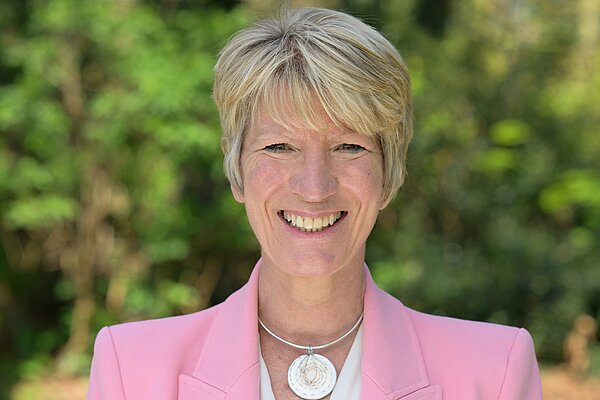
South Cambridgeshire MP Pippa Heylings said: "I thank my hon. Friend the Member for South Cotswolds (Dr Savage) for moving the motion and for her powerful speech. I also thank all the signatories to the petition. I want to add my voice to the calls for transgender people to be able to change their legal gender through self-identification and, in particular, without the need for recourse to a medical diagnosis of gender dysphoria.
"The petition reflects a long-standing call for dignity, simplicity and fairness in how we treat some of the most marginalised people in our society. We seem to be going backwards rather than forwards. The Women and Equalities Committee spent years scrutinising the Gender Recognition Act. As early as 2016, and again in a 2022 report, the Committee recommended a move to a more streamlined, de-medicalised process, recognising that being trans should never be treated as an illness. Yet that is exactly what the current process continues to do. The requirement to obtain a medical diagnosis of gender dysphoria from an NHS gender clinic doctor is not only dehumanising and daunting for those involved, but these days is practically almost impossible, and inaccessible.
"As other Members have done, I would like to bring into the debate the voice of trans people, particularly from my South Cambridgeshire constituency. Let me share the very human story of what it is like in practice—the story of a trans woman who embodies the struggle that the petition seeks to address. Yannifer is a trans woman, a close friend and a colleague of mine. She happily changed her gender in her passport and driving licence back in 2023, after a visit to her GP—self-declaration in practice. I remember the joy of that day, and her joy and pride in what she said was her most life-affirming moment. But that was short-lived, because she then realised that that did not entitle her to the next steps towards a gender recognition certificate, nor to hormone treatment. For that, she needs a diagnosis of gender dysphoria from an NHS gender clinic.
“With the NHS in crisis and the reality of the current provision, Yannifer is now two years into what is likely to be at least a six-year wait—a cruel and unnecessary delay for a basic recognition of her identity. She has been able to form the most special of relationships, but she is not able to marry her partner in her own acquired gender without a gender recognition certificate. More dangerously, she has had to turn to private treatment, at huge personal cost, because her GP still refuses to prescribe the hormones that she needs, citing loopholes that discredit private diagnoses.
"We have heard today about the mental health impact of this process, and the stress and uncertainty that it causes are not hypothetical. The situation in which Yannifer finds herself is dangerous. She has told me that to procure medication informally is just to survive, because the alternative of not being able to live in her acquired gender and to change and transition, as she puts it, would be “practically suicide-inducing”. So she lives in limbo, denied the basic dignity of legal recognition. There are huge questions over the need for this medical diagnosis. As the Women and Equalities Committee concluded, the diagnosis is outdated. The World Health Organisation has moved from “gender dysphoria” to “gender incongruence”, under a non-mental health classification. The UK is now out of step with international best practice.
"Ireland, Denmark, New Zealand and Argentina have all reported positive administrative and public health outcomes from policies based on legal gender self-declaration. As we have heard today, these nations are not collapsing and the sky has not fallen in. They are modernising, but in the UK we continue to ask trans people to navigate a legal process that is, according to the Government’s own consultation, dehumanising, overly bureaucratic and prohibitively expensive. We continue to ask trans people to prove that they are ill in order to access the legal right to live as their authentic selves. That contradiction is not only outdated, but harmful.
“Trans people such as Yannifer are not asking for special treatment; they are asking for respect, safety and recognition. I would like Yannifer to know that she is heard, and that we see, value and respect her. That is why I am urging the Government and the Minister to reconsider the recommendations of the Women and Equalities Committee, to allow self-identification, remove the requirement of a gender dysphoria diagnosis from the Gender Recognition Act and reform the Act completely to enable self-identification, as the petition requests.”
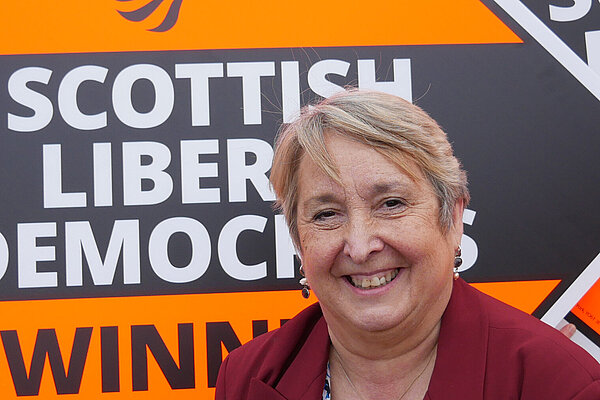
Christine Jardine MP, who represents Edinburgh West, said: "I congratulate my hon. Friend the Member for South Cotswolds (Dr Savage) on leading the debate with such a powerful speech on behalf of the 120,000 people who want us to consider the petition carefully. I thank them for bringing the voice of the trans community into this Chamber. They need to be heard. More than that, they need to be listened to.
"For the past six to eight months, and in fact the past three and a half years, this debate has been a big part of my life. That is not just because I am a Scottish MP— I recognise what the hon. Member for Edinburgh South West (Dr Arthur) was talking about—but because I have been at the centre of the formation of Liberal Democrat policy on this issue. The revised policy that we came up with sets out our continued commitment to self-ID. The Conservative Government’s 2018 proposals to reform the gender recognition process, which we first endorsed in 2014, are at the heart of it.
"The proposals would remove the requirement to provide medical reports confirming a gender dysphoria diagnosis, as well as the spousal veto—a horrible requirement for the person applying for a GRC to provide a statutory declaration of consent from their spouse. Applicants would still have to prove that they have lived in their affirmed gender for at least two years and make a legal declaration that they intend to live permanently in that gender for the rest of their life—put simply, self-ID. It would be clearer, simpler and less intrusive.
"However, that is just the paperwork. It is not really what this issue is about. Over the past year of listening to various groups and hearing their views on what is needed to protect the trans community and the LGBTQ community in general, I have learned that it is, more than anything else, about valuing people. It is about recognising their worth, their human rights and their right to live a life free of victimisation, discrimination, fear and anxiety. As my hon. Friend the Member for South Cotswolds said, this is not about an abstract debate, but about real lives and real people.
"That is where I begin to struggle with many of the things that have been said over the past three years. This is about people who are living in distress that has been caused by the uncertainty created by the Supreme Court ruling and the EHRC interim guidance. For so many of them, that has meant that the lives they have led, in some cases for decades, quite straightforwardly, simply and happily—recognised by their peers—have been thrown into doubt. Suddenly it seems that in this country, rather than making progress and protecting people’s rights, we are regressing.
"We have had this toxic debate for three years in Scotland; I suppose in some places it has been much longer. We have had three years of pitting one vulnerable group against another: on the one hand the rights of women, and on the other hand the rights of the trans community. To me, it is utterly ridiculous to pit against each other two vulnerable groups who are both afraid and continually victims of discrimination and violence. We are completely losing sight of the damage that we are doing to both groups.
"I completely understand and sympathise with the arguments put forward by those who fear that women could be vulnerable to attack in certain circumstances and single-sex spaces unless we protect them. Of course we should protect them, but that is not anything to do with the rights of the trans community. They are not the problem, and their rights should not be impacted by the rights of women. One person’s rights should never be contingent on another’s, and yet that is what we have done. The statistics we have heard are frightening; hon. Members have outlined how we have made people from the trans community into targets. It saddens me to my core that the debate around fundamental rights—maybe those of your friends, your family, your neighbours or your work colleagues—has been so toxic.
"Just recently, a friend of mine whose child is trans told me that since the ruling she now worries about how they are expected to go about their life every day and do simple things that we take for granted—like going to the toilet at work, for goodness’ sake. Funnily enough, not so long ago she told me how wonderful it was, now that they had completed their transition, to see them happy in themselves, living the life that they had always wanted to live. That is why I believe that we need to think seriously about self-ID. We need to think seriously about how we can put an end to the confusion and the anxiety that are being felt by too many people in this country.
"Just think for a moment: what if we had been talking about your child, brother, sister or friend? Yes, there are questions that we have to overcome about prisons and single-sex spaces, but those problems should not come before protecting the rights of anyone. Somehow that has been lost in the toxic debate, but we have to stop. We have to change the narrative around this issue. It is clear today that people want us to find a way forward, stop rehearsing bitter arguments and look for ways to help one another, help people find a way forward and allow everyone to be free to live the life that they want to lead.
"I remember a time not unlike this one, when another campaign of fear—the threat of HIV and AIDS—made life insufferable for the gay community in this country. That we would now live in a society that embraces same-sex relationships and allows us all to be free to love who we love was unimaginable then, but we have changed. My generation—my friends—went through hell then. Well, now another generation needs our help and support in protecting their rights. If we do not protect their rights, we risk losing all our rights. Women’s rights, children’s rights, men’s rights, minority rights and trans rights are all human rights. If we do not protect one, we risk losing them all.
"I ask the Government to examine what they are doing at the moment. A friend of mine said to me today that we should judge our society by how we treat our vulnerable minorities. I ask the Government to do that to look at the legislation, look at how it is treating our vulnerable minorities, and ask themselves if that is acceptable. Or, if they are prepared to put an end to the confusion, the anxiety and the fear.
"Every vulnerable group in this society deserves the protection of not just their Government but their community. I ask the Government to think about that and think about whether it is time to allow trans people in this country to have the same freedom as others. That is not a privilege, but a right. I mean the same freedom to live the life that they want to live—the life that they would have in Ireland, Germany, Iceland and so many other countries. We are falling behind and letting our people down.
Finally Roz Savage summated the debate saying: "I thank all the hon. Members who have spoken in support of this petition with understanding and empathy. As a Liberal Democrat, one of my foremost values is to create a society in which people are able to lean into their full potential. In the past in this country, we have tried to force left-handed people to be right-handed and gay people to be straight, or otherwise have punished people who deviate from the norm for being who they are. Let us not repeat that mistake by putting insuperable obstacles in the way of trans people.
"Today, we have heard some argue about the right of trans people versus the right of women to have a safe space. This is very complex, and in some contexts it is especially sensitive, but let us keep it in proportion. Trans people are a tiny percentage of the population, and the vast majority of them just want to be able to live their lives peacefully. As has been mentioned, being trans is not a lifestyle choice. It is a path that is difficult, onerous and too often fraught with danger. It is not a mission that people undertake in order to gain access to single-sex spaces of the opposite sex.
"As parliamentarians, we have a duty to get this right. It is literally vital, given the terrible and tragic rates of suicide and mental health issues among trans people. I would like to leave the Government with the following questions. What measures will they implement to reduce the current seven-year NHS waiting lists? What will they do to address the shockingly low prosecution rate for hate crimes against trans people? What will they do to ensure that tragic cases like Joelle’s, who was left waiting a crucial eight days for cancer treatment, never happen again? What will they do to ensure that there is fairness and clarity for the trans community going forwards?
"Trans people in the UK are not asking for special treatment; they are simply asking to be seen, recognised, safe and treated with respect and dignity. And finally, I say this to any trans person listening to the debate: even in a political climate where your identity is too often debated rather than respected, there are people in this
“Parliament who will stand up for your right to live freely and authentically, and to live to your full potential. We owe it to you to keep the focus where it belongs—on your humanity.”